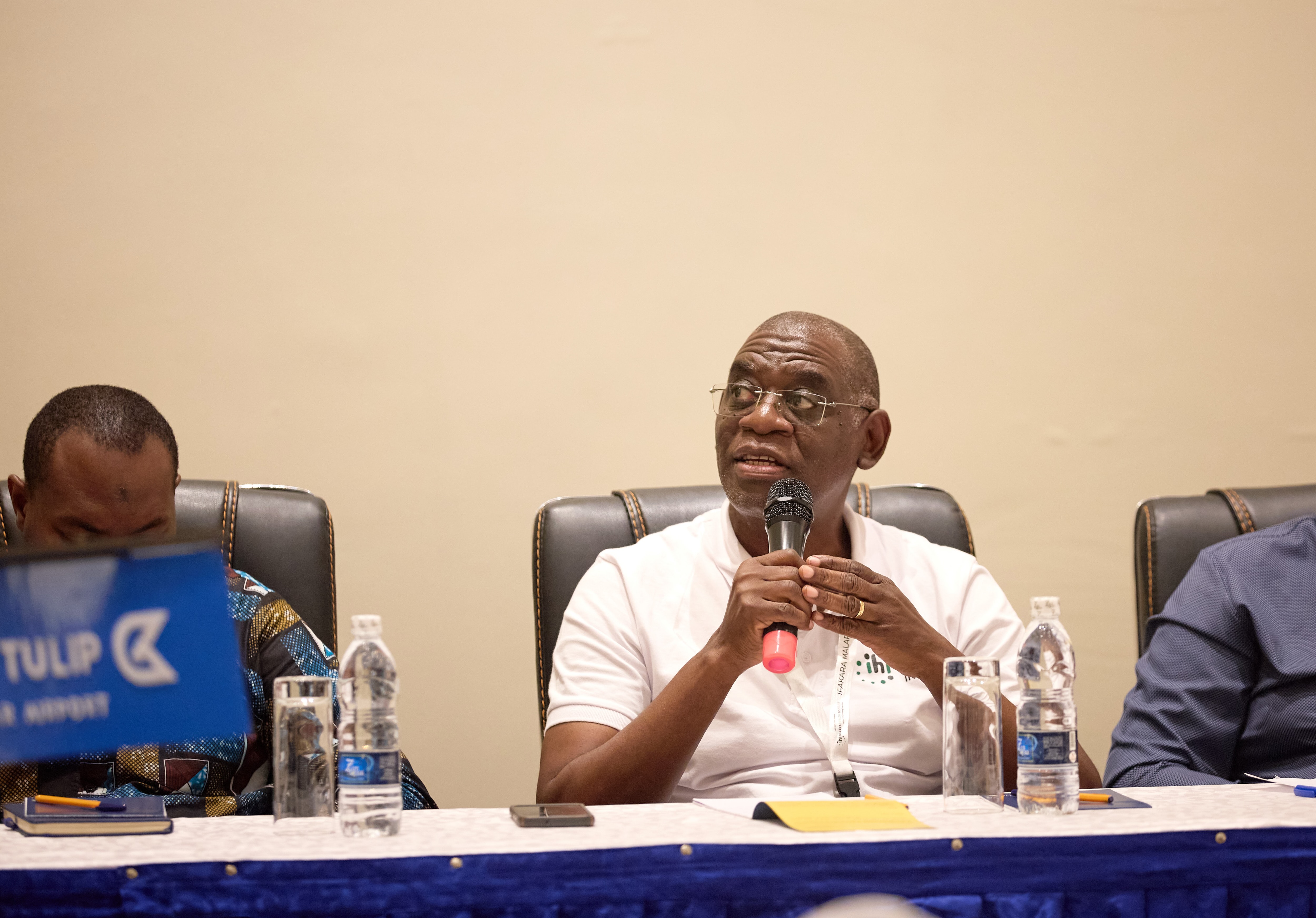
PANEL: Multisectoral dialogue to end malaria in Zanzibar

On September 13 2024 – the final leg of the 2024 Grand Challenges Africa Meeting site visit in Zanzibar, key partners from the Ifakara Health Institute, the Gates Foundation, and other influential organizations convened for a panel discussion addressing the critical need for a multi-sectoral approach to enhancing malaria elimination in Zanzibar.
Moderated by Dr. Samson Kiware from Ifakara and Dr. Maulid Kassiim from the Zanzibar Malaria Elimination Program (ZAMEP), the session featured these experts: Dr. Honorati Masanja, Chief Executive Director of Ifakara; Philip Welkhoff, Director of Malaria at the Gates Foundation; Dr. Shija Shija from ZAMEP; Dr. Fabrizio Molteni from the Swiss Tropical and Public Health Institute; Dr. Salim Slim, Director of Prevention and Health Education at the Ministry of Health Zanzibar; Dr. Ally Amour from the End Malaria Council, representing the private sector and tourism industry; Othman Juma Suleiman from the Ministry of Agriculture, focusing on irrigation schemes; and Ms. Asya Idd Issa from the Ministry of Education.
The discussion focused on ZAMEP's ambitions, the multi-sectoral engagement strategy, existing programmatic gaps, opportunities for collaboration, and potential operational research areas to optimize malaria elimination efforts. These included local resource mobilization strategies for malaria financing. Despite the existence of a multi-sectoral engagement guideline, full implementation across all relevant sectors remains a challenge.
Participants stressed the importance of broader collaboration, particularly given Zanzibar's reliance on tourism and agriculture, where integrating malaria prevention measures is essential for sustainable elimination.
Panelists reflected on key steps taken by Zanzibar's Ministry of Health to strengthen collaborations, aligning national health priorities with international efforts. They also highlighted the vital role of researchers and funders in supporting Zanzibar's malaria elimination agenda.
Dr. Masanja emphasized the longstanding relationship between Ifakara, the Ministry of Health Zanzibar, and ZAMEP, reaffirming Ifakara’s commitment to providing continued research support.
Welkhoff praised the session, noting that the dialogue itself exemplified the multi-sectoral engagement necessary for progress. On the topic of sustainability, Dr. Slim thanked stakeholders for their ongoing support and reaffirmed the Ministry’s commitment to ensuring sustained efforts and resource mobilization.
The session concluded with a shared vision of strengthening multi-sectoral partnerships, expanding engagement beyond the health sector to industries such as tourism. Continuous collaboration and innovation, supported by international organizations like the Gates Foundation, were reiterated as crucial to overcoming the final hurdles in the fight against malaria.
